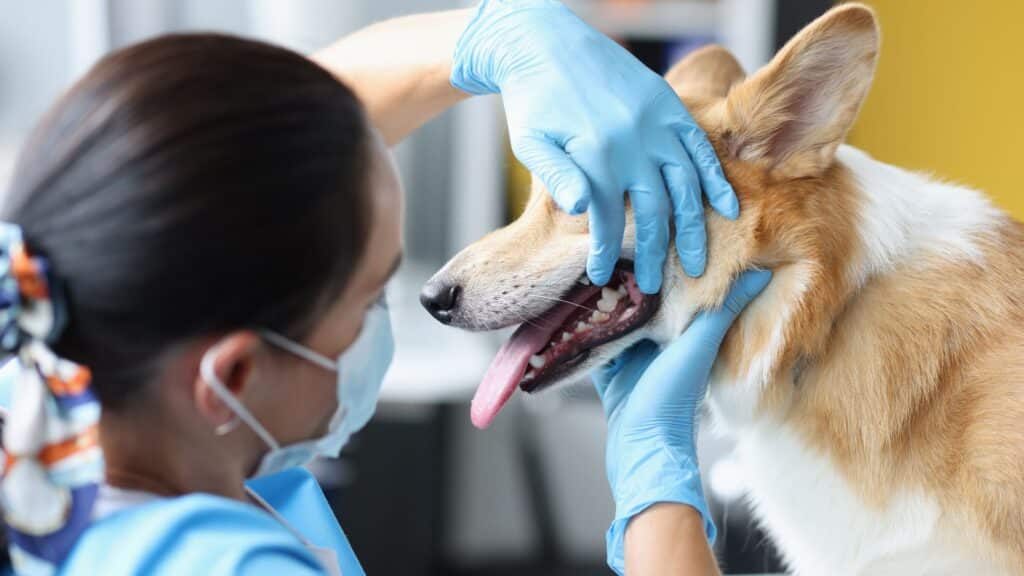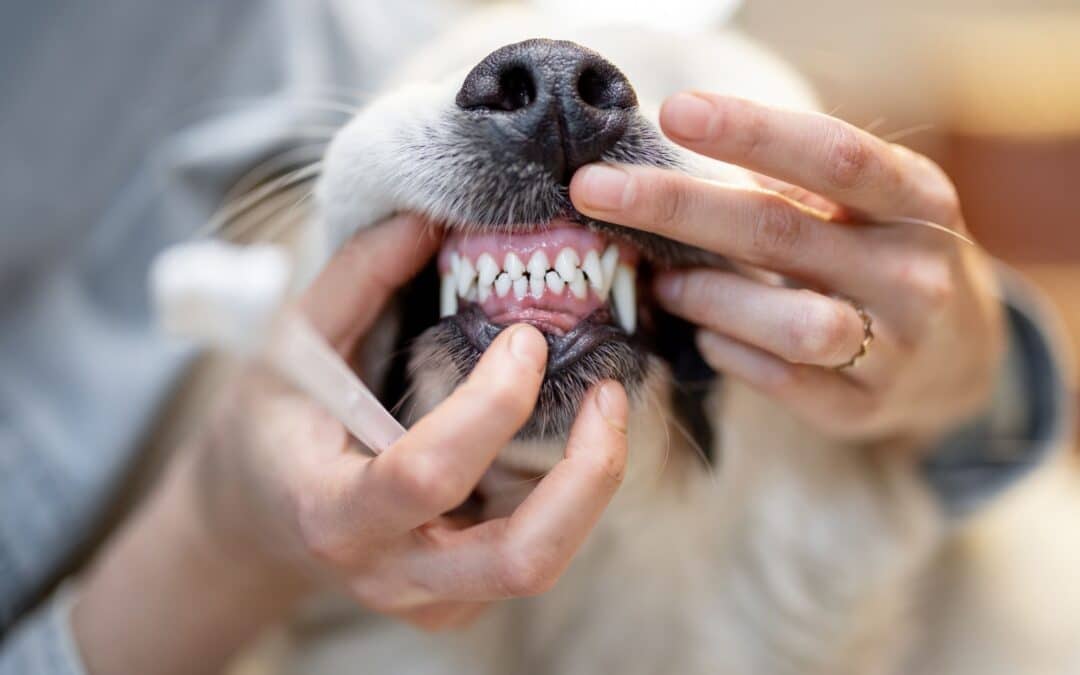The Importance of Dental Health in Pets: Key Insights for Pet Owners
Maintaining dental health is as crucial for pets as it is for humans. Just like you, your pet can suffer from dental problems such as plaque buildup, gum disease, and tooth decay, which can lead to more serious health issues if left untreated. Regular dental care can prevent these problems, keeping your pet healthy and comfortable. Proper dental hygiene can also save your pet from the pain of dental diseases and, in the long run, can save you money by avoiding expensive treatments for advanced dental problems.
To understand the importance of dental health in pets, consider how dental issues can impact their overall well-being. Bacteria in the mouth can enter the bloodstream and affect various organs, potentially causing or exacerbating heart, liver, and kidney diseases. Symptoms like bad breath, difficulty eating, and oral discomfort may indicate underlying dental issues. These signs should prompt a visit to the vet for a dental check-up.
A routine that includes regular brushing of your pet’s teeth with pet-safe toothpaste can go a long way in maintaining oral health. This, combined with professional cleanings as recommended by your veterinarian, can ensure that your pet’s teeth and gums stay strong and healthy. Feeding your pet a balanced diet and providing dental chews are additional steps you can take to support dental health. By being proactive about your pet’s oral care, you’re contributing to their overall quality of life.
Understanding Pet Dental Health
Maintaining your pet’s dental health is crucial for their overall well-being. It begins with recognizing potential dental problems and understanding the dire effects of poor oral hygiene.
Signs and Symptoms of Dental Issues
Pay close attention to the condition of your pet’s teeth and gums. You may notice bad breath, which is often the first sign of dental issues. Here’s a list of other symptoms to watch for:
- Plaque and Tartar: Yellow or brown buildup on the teeth.
- Gum Disease: Red, swollen, or bleeding gums.
- Tooth Decay: Visible signs of damage or discoloration on the teeth.
- Pain: Difficulty eating, drooling, or pawing at the mouth indicates discomfort.
Consequences of Neglected Oral Hygiene
Ignoring the signs of dental problems can lead to serious consequences:
| Consequence | Description |
|---|---|
| Gingivitis | Inflammation of the gums that can progress to more severe periodontal disease. |
| Periodontal Disease | A serious infection that can spread, affecting organs and leading to other health issues. |
| Tooth Loss | Advanced dental disease may result in the loss of teeth. |
| Systemic Effects | Oral bacteria can enter the bloodstream, potentially harming the heart, liver, and kidneys. |
Remember, consistent dental care can prevent these issues and ensure your pet lives a happy, healthy life.
Professional Dental Care for Pets

Professional dental care for your pet, conducted by a veterinarian, is crucial in maintaining their overall health. This includes regular check-ups, dental x-rays, and thorough cleanings to prevent and treat oral diseases.
Routine Veterinary Check-ups
Your pet’s oral health begins with routine veterinary check-ups. During these visits, your vet will perform a physical examination of your pet’s mouth to assess for signs of dental disease, which might include tartar buildup, gum inflammation, or loose teeth. These check-ups help in the early detection of oral issues, allowing for prompt treatment.
- Frequency: Annually or semi-annually, depending on your pet’s health
- Key Checks: Teeth, gums, oral cavity
The Role of Dental X-Rays
Dental x-rays play a pivotal role in diagnosing beneath-the-gum oral issues that are not visible to the naked eye. They help your vet identify problems such as tooth root abscesses, retained baby teeth, or jawbone abnormalities.
- Importance: Essential for comprehensive diagnosis
- Procedure: Often requires anesthesia for accurate and safe imaging
Professional Cleaning and Procedures
To safeguard your pet’s dental health, veterinarians recommend professional cleaning, which typically entails:
- Scaling: To remove tartar and plaque from the tooth surface and beneath the gums.
- Polishing: To smooth the tooth surface after scaling, deterring future plaque buildup.
These cleanings are often performed under anesthesia to ensure they are thorough and minimize stress and discomfort for your pet. In more severe cases, treatments may include extraction of damaged or diseased teeth to restore oral health and prevent further complications.
- Treatment: Tailored to your pet’s specific needs
- Recovery: Monitored by veterinary staff to ensure your pet’s well-being post-procedure
Home Dental Care Strategies
Implementing effective dental care practices at home is critical for maintaining your pet’s oral health. Through daily brushing and the use of appropriate dental products, you can keep your pet’s teeth clean and their gums healthy.
Daily Brushing Techniques
To ensure the most effective dental care for your pet, it’s essential to establish a daily brushing routine. Use a toothbrush specifically designed for pets along with pet toothpaste which is safe if swallowed and comes in flavors that are appealing to animals. The brushing technique involves:
- Gently lifting your pet’s lip to expose their gums and teeth.
- Placing the brush at a 45-degree angle to the gum line, moving in a circular motion.
- Brushing the outer surfaces primarily, as this is where plaque tends to accumulate.
- Aiming for daily brushing, but starting a few times a week can help your pet adjust.
Remember, starting with short sessions and gradually increasing the duration as your pet gets more comfortable can make the process easier.
Appropriate Dental Products for Pets
Selecting the right dental products for your pet is vital. Here are products that can contribute to your pet’s oral hygiene:
- Dental Chews and Treats: These are specifically formulated to remove plaque buildup and can be used alongside brushing.
Dental Product Purpose Frequency of Use Dental Chews Removes plaque, freshens breath Daily or as advised Dental Treats Enhances mechanical cleaning Daily or as advised - Water Additives: Odorless and tasteless additives for your pet’s drinking water that help reduce plaque and tartar formation.
- Toothpaste and Toothbrushes: Always choose toothpaste formulated for pets, as human toothpaste can be harmful if ingested. For toothbrushes, you can find various sizes and types, including finger brushes, to suit your pet’s mouth.
By incorporating these products into your pet’s dental care routine, you can actively help prevent dental diseases and contribute to their overall health.
Diet and Dental Health
Your pet’s dental health is closely linked to their diet. Understanding the impact of food choices and specific dental-promoting products is vital for maintaining healthy teeth.
Choosing the Right Food
When selecting your pet’s food, aim for high-quality kibble with a shape and texture that help remove plaque. Dry food is generally better at promoting dental health than wet food due to its abrasive action on teeth.
- Food Attributes:
- Size & Shape: Large pieces that require chewing can improve dental health.
- Texture: Firm textures scrape against teeth, reducing plaque buildup.
Look for products specifically designed for dental care that carry a seal of approval from relevant veterinary organizations.
Benefits of Dental Diets and Chews
Dental diets and chews offer dual benefits: they satisfy your pet’s need to chew while helping to keep their teeth clean.
- Dental Diets:
- Specially formulated to maintain oral health
- Often contain additives that help prevent tartar build-up
- Dental Chews:
- Physical chewing action helps clean teeth
- May contain active ingredients that reduce plaque and freshen breath
Feeding your pet dental chews or a dental diet can promote good oral health and complement regular dental care routines.
Identifying and Addressing Dental Emergencies
It is crucial for pet owners to quickly recognize and address dental emergencies to prevent further complications and ensure the welfare of their pets.
Recognizing Dental Emergencies
You should be vigilant for signs of dental emergencies in your pet. Broken teeth and abscesses are clear indications of urgent dental issues. You may notice your pet has difficulty eating or displays a sudden change in eating habits. Swollen gums, bleeding gums, and drooling can also signify a dental emergency, particularly if accompanied by an infection. Weight loss may occur if the dental pain is causing a decrease in food intake. Additionally, behavior such as pawing at the mouth can indicate your pet is in discomfort and in need of immediate attention.
Immediate Steps and Treatment
Upon identifying any of these symptoms, take the following immediate steps:
- Do not attempt to treat severe dental issues on your own as this could exacerbate the problem or cause further distress to your pet.
- Offer soft food to minimize discomfort during eating if your pet is still willing to eat.
- Contact your veterinarian promptly if you suspect a dental emergency. They will provide guidance on managing the situation until you can bring your pet in for a consultation.
Treatment from a professional may include:
- Removal of broken teeth to prevent infection and alleviate pain.
- Antibiotics or other medications to treat any infection present.
- Pain management strategies to keep your pet comfortable.
- Surgery in severe cases, such as when an abscess needs to be drained or removed.
It’s important to schedule regular dental check-ups to prevent emergencies. However, when they do occur, acting decisively and with the guidance of a veterinarian can protect your pet’s dental and overall health.
Frequently Asked Questions
Good dental health is crucial for your pet’s overall well-being. These common questions address the significant aspects of maintaining your pet’s dental hygiene.
What are the benefits of regular dental cleanings for pets?
Regular dental cleanings can prevent tartar build-up, gum disease, and tooth loss in pets. It can also help detect dental issues early, leading to more manageable treatment and better health outcomes.
How can dental care products like wipes and water additives improve my pet’s dental health?
Dental wipes are designed to remove plaque from your pet’s teeth and are easier to use than toothbrushes, while water additives can help reduce bacteria and bad breath. These products complement regular dental routines in maintaining oral health.
Are there particular dog dental care products that veterinarians commonly recommend?
Veterinarians often recommend enzymatic toothpaste formulated for dogs, as it helps break down plaque. Dental chews with a texture that scrapes away plaque can also be beneficial when used consistently.
How does maintaining my pet’s dental hygiene contribute to their overall well-being?
By preventing oral diseases, you reduce the risk of bacteria entering your pet’s bloodstream, which can affect major organs. A healthy mouth is linked to a lower chance of heart and kidney diseases in pets.
What are affordable options for providing dental care to my pet?
Brushing your pet’s teeth with a suitable toothbrush and toothpaste is a cost-effective method. Additionally, using dental chews approved by the Veterinary Oral Health Council (VOHC) can economically contribute to your pet’s oral hygiene.
When is Pet Dental Health Month and what activities can I do with my pet to observe it?
Pet Dental Health Month is observed every February. This month can be marked by scheduling a dental check-up for your pet, starting a regular brushing routine, and educating yourself about your pet’s dental care needs.





Recent Comments